Photographs: Paresh Gandhi H S Rao, Rediff Business Desk
Coimbatore Krishna Rao Prahalad, better known as C K Prahalad, is Professor of Strategy at the Ross School of Business at the University of Michigan.
Professor Prahalad, who introduced the term "core competencies" to the management lexicon, is the author of several bestselling management books, notably 'The Fortune at the Bottom of the Pyramid', published in 2004, which argued that the world's poor represented a market worth up to $13 trillion a year. Prahalad's influence on the business world is immense," said Des Dearlove, co-creator of 'the Thinkers 50 ranking', in a statement.
Prahalad is one of six Indian-born management thinkers to make the 2009 listing. The Time, works with Des Dearlove and Stuart Crainer, visiting professors at IE Business School in Madrid and associates at London Business School's Management Innovation Lab, to compile 'The Thinkers 50', a biennial list of the most influential living management thinkers.
While Prahalad maintained his top slot from the 2007 edition, the global economic slump has significantly changed the rest of the ranking.
Thirteen thinkers make their first appearance on the list in 2009, including Nobel laureate Muhammad Yunus, founder of Grameen Bank and author of Banker to the Poor.
Only 19 of the original 2001 thinkers are in the 2009 list. Paul Krugman and Don Tapscott, who were included in 2001, return after a break.
Check out the other Indians who have made it to the 'The Thinkers 50' list...
Prahalad, Tata among most influential thinkers
Image: Ratan Tata.Photographs: Arko Datta/Reuters
Ratan Tata, chairman of the Tata Group, one of India's largest conglomerates is ranked 12th among the most influential thinkers.
This is what Tata said on thinking big: "We have been...thinking small. And if we look around us, countries like China have grown so much by thinking big. I would urge that we all, in the coming years, think big, think of doing things not in small increments, not in small deltas, but seemingly impossible things. But nothing is impossible if you really set out to do so. And we act boldly. Because it is this thinking big and acting boldly that will move India up in a manner different from where it is today."
Tata has been chairman of Tata Sons, the Tata promoter company, since 1991. He is also chairman of other Tata companies, including Tata Motors, Tata Steel, Tata Consultancy Services, Tata Power, Tata Tea, Tata Chemicals, Indian Hotels and Tata Teleservices.
Tata joined Tata Steel in December 1962. After serving in various other Tata companies, he was appointed director-in-charge of National Radio & Electronics Company Limited (NELCO) in 1971.
In 1981, he was named chairman of Tata Industries, the second Tata promoter company. Mr Tata is also the chairman of two of the largest philanthropic trusts in the private sector in India.
Prahalad, Tata among most influential thinkers
Image: Ram CharanRam Charan, a high profile business advisor and speaker is at the 13th most influential thinker. One of the world's brightest and best management gurus, his expertise has been called on by global giants like General Electric, DuPont and Bank of America.
He is known for his uncanny ability to solve some of the toughest business problems. Charan has worked behind the scenes with world's most successful companies for over three decades.
Prahalad, Tata among most influential thinkers
Image: S (Kris) Gopalakrishnan.Photographs: Vivek Prakash/Reuters
Infosys co-founder and CEO Kris is the world's 15th most influential thinker. Gopalakrishnan is one of the founders of Infosys Technologies.
As CEO, he plays a key role in defining the company strategy and using technology and innovation continuously to maintain its leadership in the industry.
On June 22, 2007, Kris took over from Nandan M Nilekani as the CEO and managing director of Infosys Technologies.
Kris previously served as chief operating officer (since April 2002), and as the president and joint managing director (since August 2006). His responsibilities included customer services, technology, investments and acquisitions.
Prahalad, Tata among most influential thinkers
Image: Vijay Govindarajan.Vijay Govindarajan, regarded as one of the world's leading experts on strategy and innovation, is ranked 24th in the most influential thinkers' list.
He is the Professor of International Business at the Tuck School of Business and chief innovation consultant for General Electric.
Praised as a "powerful and passionate communicator," Govindarajan will soon take a one-year leave of absence from Tuck to serve as chief innovation consultant and professor in residence at General Electric.
Govindarajan will continue to teach his implementing strategy elective in Tuck's MBA program.
Prahalad, Tata among most influential thinkers
Image: Rakesh Khurana.Rakesh Khurana ranked at 24, is the Marvin Bower Professor of leadership development at the Harvard Business School.
Professor Khurana received his B.S. from Cornell University in Ithaca, New York and his A.M. (Sociology) and Ph.D. in organization behaviour from Harvard University.
He worked as a founding member of Cambridge Technology Partners in sales and marketing. Professor Khurana's research uses a sociological perspective to focus on the processes by which elites and leaders are selected and developed.
He has written extensively about the CEO labour market with a particular interest on: the factors that lead to vacancies in the CEO position; the factors that affect the choice of successor; the role of market intermediaries such as executive search firms in CEO search; and the consequences of CEO succession and selection decisions for subsequent firm performance and strategic choices.
Prahalad, Tata among most influential thinkers
Image: Nirmalya Kumar.Nirmalya Kumar features in the list of 'Thinkers shaping the future', a group of people who are not among the top 50 but have great potential going forward.
Nirmalya Kumar is the professor of marketing, director of Centre for Marketing, and co-director of Aditya V Birla India Centre at the London Business School.
Nirmalya is passionate about marketing, for marketing to be relevant to CEOs, it must become strategic, cross-functional, and bottom-line oriented, he believes.

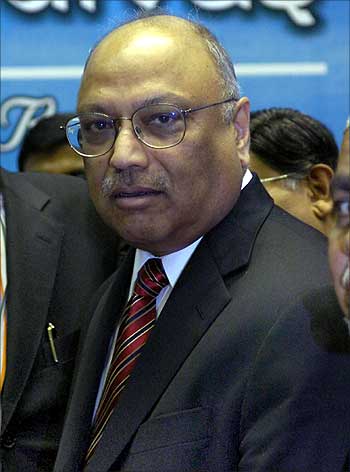
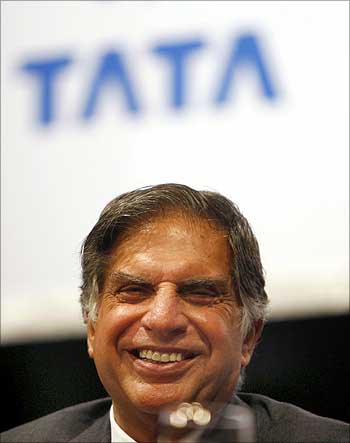
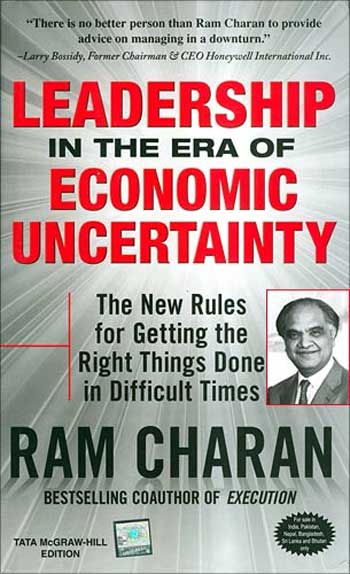
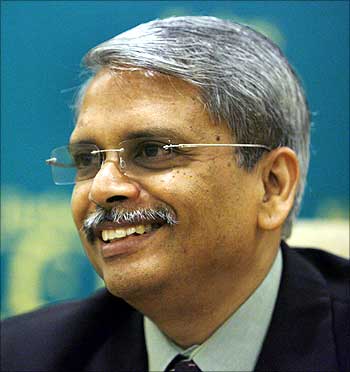

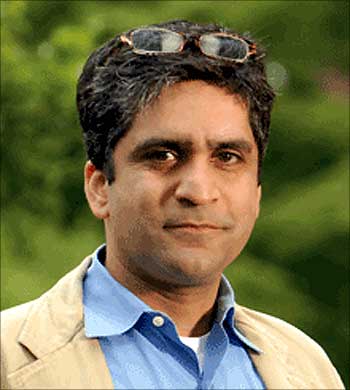
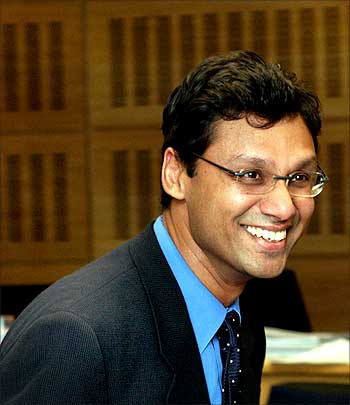
article